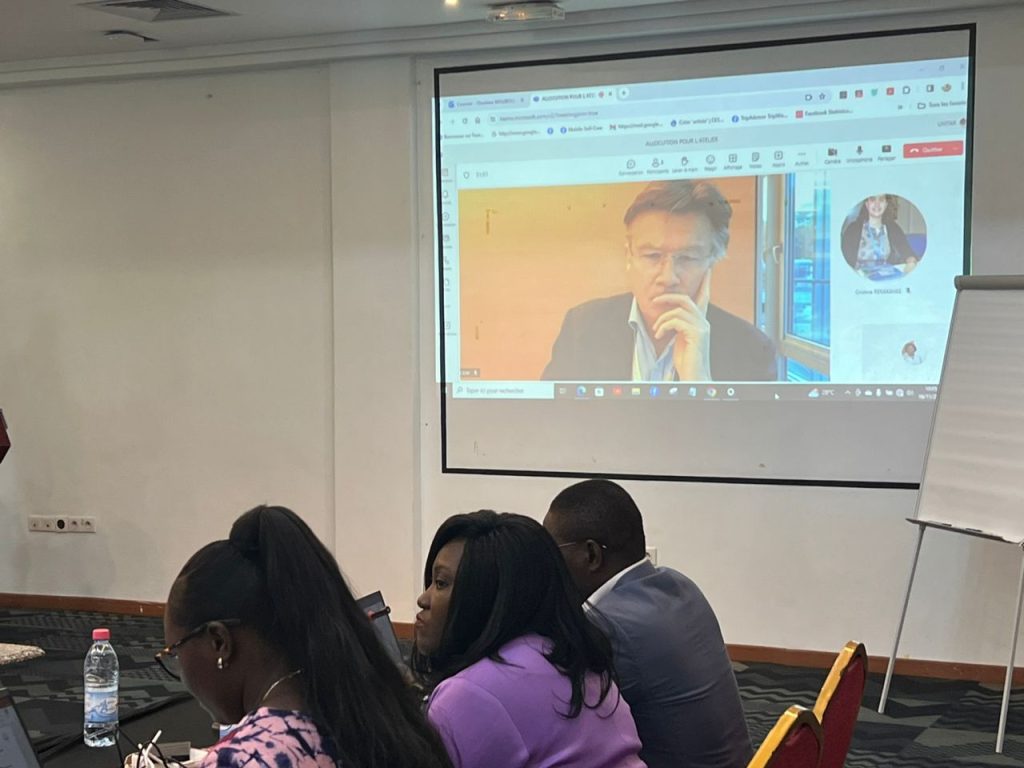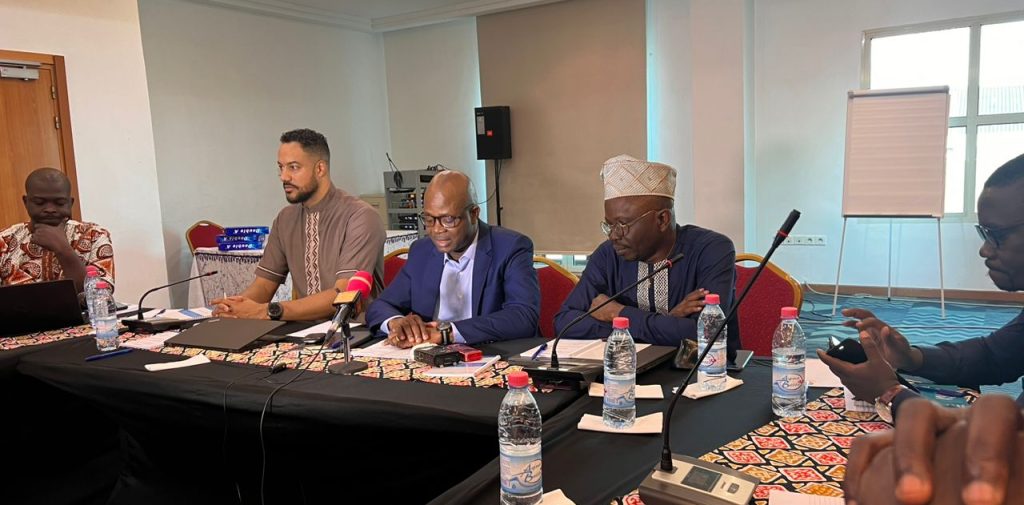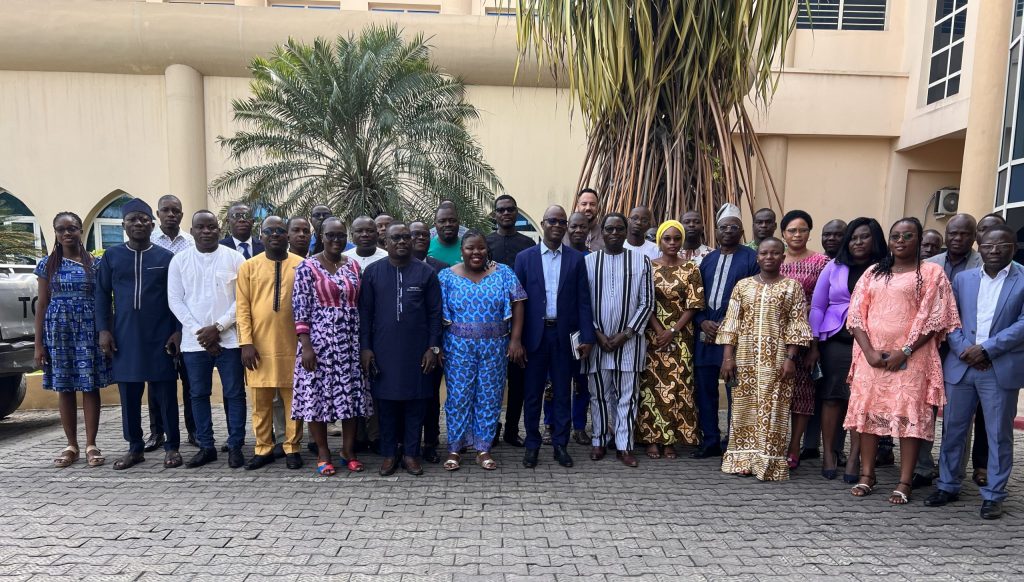In its ambition to align with international commitments on climate change, Benin has implemented its Nationally Determined Contribution (NDC), developed in 2017 and updated in 2021 under the Paris Agreement. Following the provisions of Articles 6 and 8 of the Paris Agreement, Benin has requested the support of international partners such as the NDC Partnership and UNITAR, through the UN CC Learn program, to better publicize the work undertaken by the country, to ensure better accounting of actions linked to the reduction of greenhouse gases, and greater ownership by all stakeholders. This is why on 16 November 2023, in Cotonou, Benin, the Ministry of the Environment and the Livelihood through the General Directorate for the Environment and Climate Change and its partners – the NDC Partnership, UNITAR, and stakeholders from other ministerial departments, civil society, medial – took part in the launch of the “Communication and monitoring of the implementation of the Nationally Determined Contribution and the Partnership Plan in Benin and the validation of the NDC synthesis report” project.
In his introductory remarks, Richard EDIKO-AKANNI, national coordinator of the project, recalled the importance of the project, including:
The general objective of this workshop is to effectively launch the Communication and Monitoring of the Implementation of the NDC and Partnership Plan in Benin project, and to validate the NDC summary report. Specifically, the aim will be to launch and validate the NDC summary document and the key messages for the communication materials, to make the document accessible to all sections of society, for better grassroots involvement.
As Angus MACKAY, Director of UNITAR’s Planet Division, pointed out:
The climate emergency affects us all. We all need to get involved.

To this end, Professor Martin PEPIN AÏNA, Director General of Environment and Climate Change, expressed his satisfaction:
I am very pleased and grateful for your presence at this workshop to think outside the box to speak a language accessible to the public.
Then, Professor AÏNA gave a brief history of the context of the NDC in Benin recalling that:
Following the completion of the status report of the NDC concerning the actions implemented in the 2017-2019 period, Benin has updated this instrument. This ambition, translated by the government of Benin, clearly shows its adherence to the United Nations Framework Convention on Climate Change and its support as a partner country to the Paris Agreement.

To ensure that all participants had the same level of information, Antoinette SAGBO, communications consultant for the project, gave a presentation of the NDC summary document. This revealed the need to simplify the language to make it accessible to all. As Albert COMPAORE, UNITAR Adviser to the countries of West Africa, said:
This document must be understood by all Beninese so that everyone can act in the same direction. This is the first time a country has made the effort to translate a document of this scope for its people. And we congratulate Benin.
The Director General of the Environment and Climate Change added:
We can’t make progress on nationally determined contributions (NDCs) as defined in the Paris Agreement without the ownership by all stakeholders. It is essential to review the language we speak, to review policy at the grassroots level, and to go as far as territorializing our NDC.
This concern for returning to the grassroots has been at the heart of the project since its inception,
In developing the NDC, we have reached out to communities in several ways. For the adaptation part, we conducted vulnerability studies by going into the field.
said Oloadjewou Odjougbele, Country Facilitator of NDC Partnership in Benin.
For a better involvement of politicians, Angus MACKAY, Director of the Planet Division at UNITAR mentioned the Declaration on Climate Change Learning that was signed by 6 countries at COP 28 in Dubai.
Working groups serving as communication activities
The media, ministerial departments, associations, and civil society gathered in sub-groups to watch a mural on climate change, which introduced them to a better understanding of the term “nationally determined contribution (NDC)”.
Alexandre Samuel GACHOUD, Coordinator of the UN CC Learn regional program, echoed Professor AÏNA’s call for a “territorialization of the NDC”, and outlined some of the communications actions to be developed in 2024.
“Specifically, for this year, we will be working on the production of television and radio programs. In addition, there will be special activities to celebrate National Tree Day (1 June 2024). The idea is to have a participatory process by engaging with the various stakeholders”.
Similarly, Charlène MOUBOULOU, Communication and Project Management Assistant at UN CC Learn, acknowledged the existing empirical expertise:
“We are aware that people are implementing adaptation and mitigation actions. So, it is important that people can take ownership of the NDC and implement its activities that really contribute to reducing the greenhouse gas emissions rate for Benin for better accounting at the national level.”
The workshop concluded with recommendations from participants on the second national radio frequency, which covers more than sixty vernacular languages, and a glossary in the main vernacular groups of Benin.

